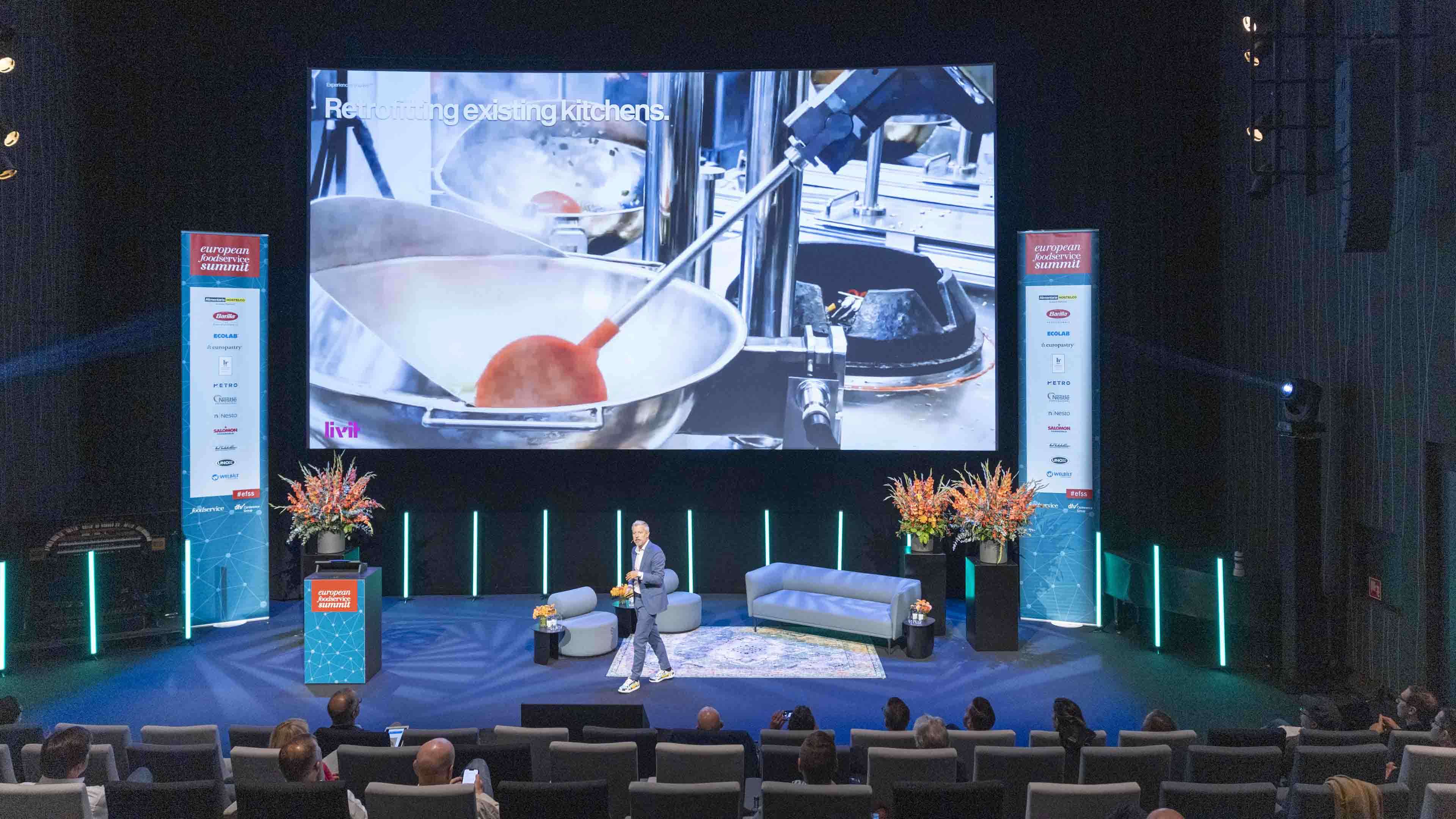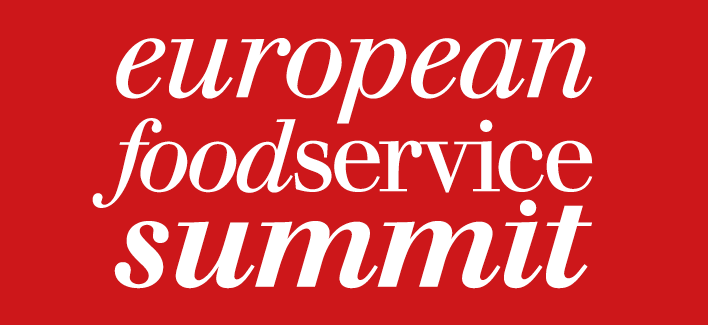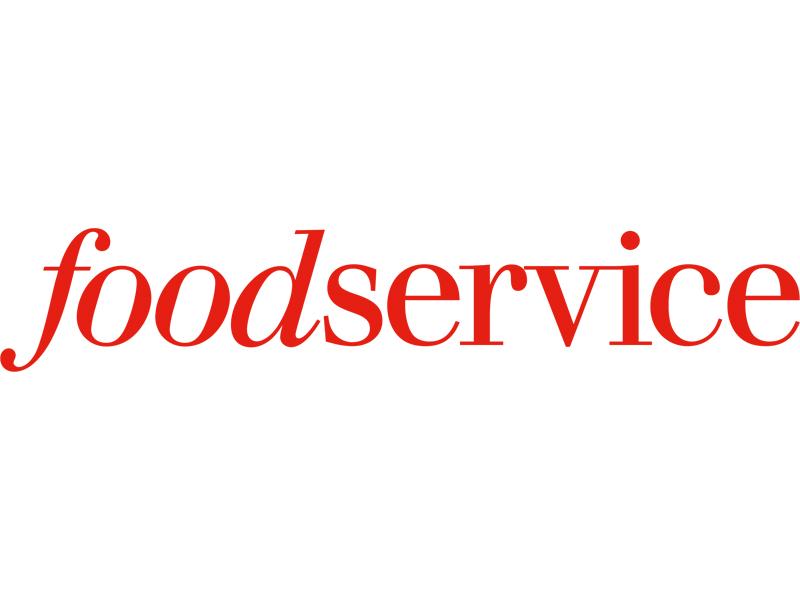A Glimpse into the Future of Hospitality
 On the second day of the European Foodservice Summit, future technologies like artificial intelligence and drone delivery took center stage.
On the second day of the European Foodservice Summit, future technologies like artificial intelligence and drone delivery took center stage.
The day began with a keynote by Benjamin Calleja of Livit Design. The CEO of the global hospitality & design company left no doubt that technology will radically transform restaurant operations. Calleja illustrated just how far-reaching the use of new tools and options can be, using the example of a Livit test restaurant in Nashville.
The location generates ten million dollars in sales with a tiny kitchen, leveraging artificial intelligence, data analytics, and cameras for menu development, guest engagement, and process management. And what’s next? Calleja is convinced that the true efficiency revolution will happen in the back-of-house—driven by the combination of robotics and AI.
Drones in Dublin
Bobby Healy, CEO and founder of Manna Air Delivery (Ireland), then explained the current state of drone delivery. Healy reported that his company has already successfully completed more than 200,000 deliveries in the Dublin area—in cooperation with international platforms like Just Eat, Uber Eats, and Delivery Hero, as well as local partners.
Healy emphasized that drone deliveries have become part of everyday life, outlining how this technology can be more cost-effective, safer, and more sustainable than traditional road transport. Manna’s drones take less than three minutes to get food from the restaurant to the customer, and the service is catching on. “Customers can choose drone delivery on delivery platforms. And once they do, they don’t go back,” said Healy.
A Market in Transition
Jochen Pinsker, Industry Advisor Foodservice Europe at Circana (Germany), presented participants with a detailed market analysis on consumer trends and developments in the European hospitality sector. He pointed out that, while out-of-home food spending has reached record highs, visit numbers still lag behind pre-pandemic levels.
Pinsker highlighted two new consumption patterns, especially in the full-service segment: the rise of solo dining, which now accounts for 15.6 percent of restaurant visits, and the influence of digital ordering and delivery services. He also stressed the importance of value-focused choices. According to the analyst, a third of foodservice purchases or restaurant visits now include promotions or combo meals. Pinsker forecasts that all these trends will continue and intensify in the years ahead—bringing new opportunities and risks for operators.
Making the Most of Data
After a brief pause for breakout sessions and networking, an expert panel on technology trends in foodservice took the stage, moderated by Victor Lugger (Sunday, Big Mamma Group). Ana Munoz (Toast), Georgio Ntontos (SevenRooms), and Ludwig Jamet (Hey Pongo) discussed technological innovations along the entire guest journey—from ordering processes and reservation management to loyalty programs and check-out.
The discussion focused particularly on practical solutions, relevant KPIs, and priority measures to improve service quality—in both fast casual and fine dining segments.
Oriol de Pablo Morató, founder of Spain’s Vicio, explained how his company—a digital-first smashburger chain—targets Generation Z with tailored social media strategies and marketing.
“We speak their language. And Vicio is a brand that thrives on social media,” the founder said. “We have built an authentic, genuine, and honest community around a burger.” Launched during the pandemic in October 2022, Oriol de Pablo Morató’s company has now become the third-largest delivery brand in Spain, with annual revenue reaching €70 million.
EFSS Moves to Madrid in 2026
After two successful years in Amsterdam, the European Foodservice Summit will move to Madrid in 2026. Tickets are already available for booking, with super early bird discounts.



